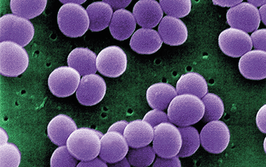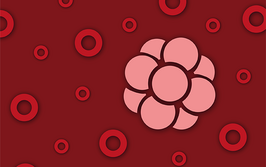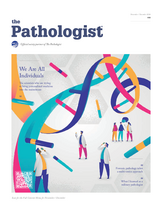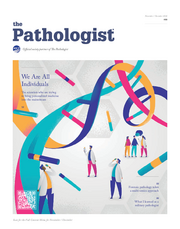Delving into the DNA of TNBC
Researchers unveil more about the genetic alterations in triple-negative breast cancer
“Triple-negative breast cancer (TNBC) accounts for nearly 40 percent of all breast cancer deaths,” says Daniel Stover, Assistant Professor of Internal Medicine in the Division of Oncology at Ohio State University Comprehensive Cancer Center. He adds that the disease is characterized by “relatively few mutations – many less than other cancer types like lung cancer or melanoma – but extensive copy number alterations.”
Despite the significance of copy number variations to this challenging disease, relatively little is known about how somatic copy numbers affect metastatic TNBC, spurring Stover and a research team from his institution to further investigate the link (1). “Most TNBCs have over half their genome altered by somatic copy number alterations,” Stover explains. “Understanding which alterations are more frequent in metastatic TNBCs relative to primary TNBCs may give us insight into the biology of aggressive TNBCs and potential therapeutic targets.”
Their study investigated cell-free DNA (cfDNA) via liquid biopsy and found that specific somatic copy number alterations are enriched and offer prognostic value for metastatic TNBC. There are currently no prognostic genomic biomarkers in use for the disease, so the findings have important clinical implications
for patients.
“We currently have two studies ongoing to validate these findings in a completely separate cohort, which is the first step,” says Stover. “At the same time, we are working to transfer this assay into the clinical setting. Finally, we are designing a clinical trial for patients with metastatic TNBC through which we may direct therapy based on their cell-free DNA characteristics.”
The researchers are also pursuing additional cfDNA sequencing techniques, including whole exome and whole genome sequencing in an effort to give greater insight into specific mutations that may provide evidence of specific resistance mechanisms or therapeutic targets. Stover adds, “We are also investigating cfDNA tumor fraction change as an early biomarker of response to therapy. We are determined to push the understanding of metastatic TNBC.”
- DG Stover et al., “Association of cell-free DNA tumor fraction and somatic number alterations with survival in metastatic triple-negative breast cancer”, J Clin Oncol, 36, 543-553 (2018). PMID: 29298117.
My fascination with science, gaming, and writing led to my studying biology at university, while simultaneously working as an online games journalist. After university, I travelled across Europe, working on a novel and developing a game, before finding my way to Texere. As Associate Editor, I’m evolving my loves of science and writing, while continuing to pursue my passion for gaming and creative writing in a personal capacity.




















